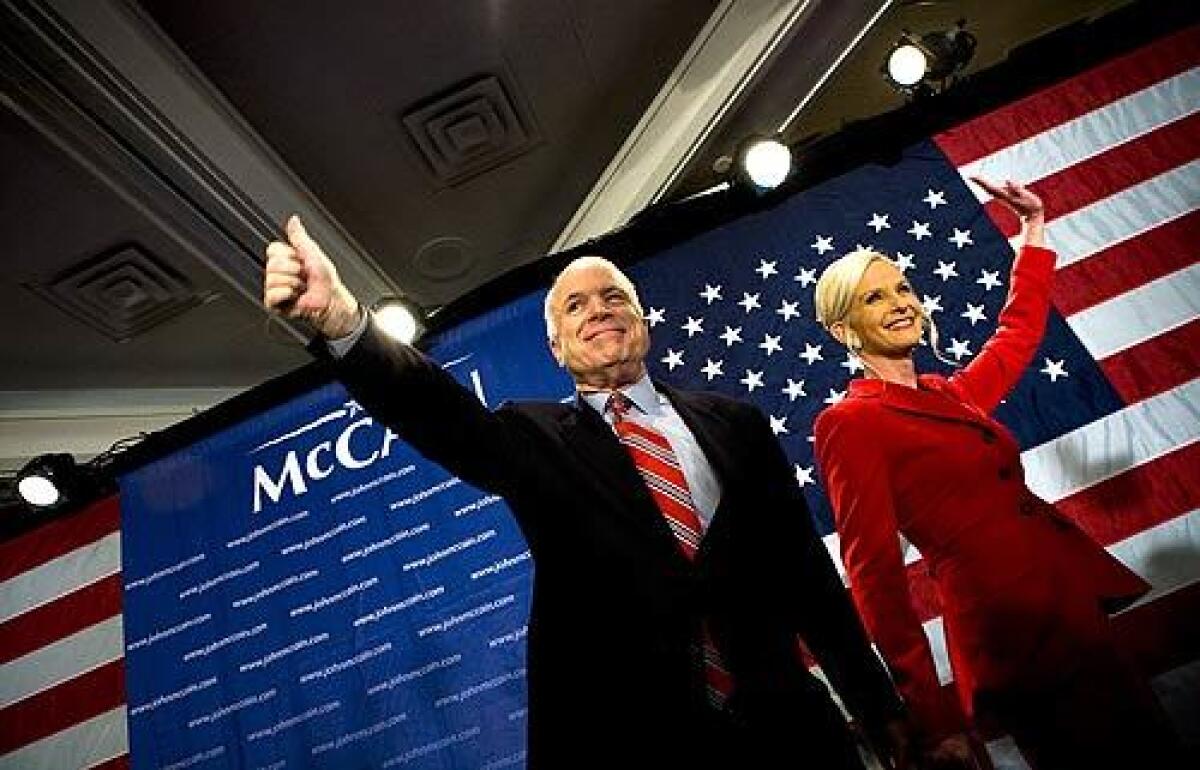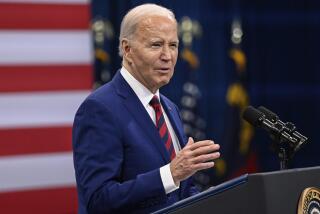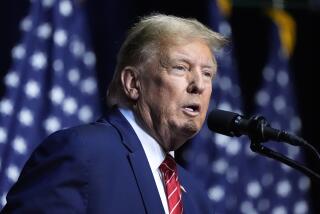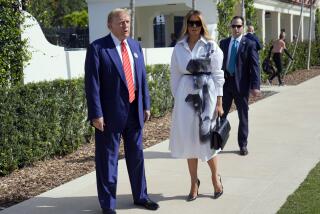McCain’s victory opens up the GOP race

John McCain’s comeback victory in New Hampshire on Tuesday puts the Arizona senator back in contention in a Republican presidential race that still doesn’t have a clear front-runner, but he faces a series of challenges.
McCain split registered Republicans with former Massachusetts Gov. Mitt Romney and won decisively among independents who voted in the GOP primary, an exit poll showed. But he lost among one key group: Voters who consider themselves conservatives favored Romney.
That suggests McCain faces an uphill battle in states where the Republican electorate is more conservative than in New Hampshire.
“I don’t think this makes him the national leader” among Republican candidates, said Whit Ayres, a GOP pollster. “I don’t think there is a national leader. I think this keeps it completely wide open.”
Political analysts said the next primary, in Michigan on Tuesday, will probably be a three-way contest among McCain, Romney and former Arkansas Gov. Mike Huckabee, who won last week’s caucuses in Iowa but finished a distant third in New Hampshire.
After that, the Republicans head for South Carolina, where social conservatives are likely to play a major role in voting Jan. 19.
Florida, where independents cannot vote in party primaries, casts its ballots Jan. 29; polls show former New York Mayor Rudolph W. Giuliani, who finished well back in New Hampshire, in a leading position in Florida.
California and 20 other states hold Republican primaries and caucuses on Feb. 5, choosing almost half of the party’s convention delegates in a single day.
That compressed schedule, combined with the fragmentation of support for the leading candidates, means that McCain faces determined competition from Romney, Huckabee and Giuliani.
In his concession speech in Bedford, N.H., Romney said he was determined to “fight across this nation, on to Michigan and South Carolina and Florida and Nevada and states after that.”
Huckabee said his third-place finish gave him “continued momentum.”
And Giuliani told supporters: “Think of it as the kickoff in what’s going to be a very long and very tough game.”
McCain’s strong showing among registered Republicans -- as measured in the exit poll sponsored by a news media consortium -- surprised many analysts, who expected the Arizona senator to rely on independent voters.
But as Neil Newhouse, a Republican pollster, noted, “He’s won this one -- but where’s his second victory going to come?”
McCain’s win gives him a jolt of momentum as he heads for Michigan, where the GOP electorate is similar to New Hampshire’s: relatively moderate and open to independents.
McCain won the state in 2000, although -- as he confessed this week on his campaign bus in a characteristic burst of candor -- that victory was “one that always puzzled me.”
Also working in McCain’s favor: Barack Obama and other major Democratic candidates are bypassing their party’s primary in Michigan, so McCain will face no competition with the Illinois senator for independents, as he did in New Hampshire. Recent polls have shown that the state is a tossup.
Romney has counted on his family ties in Michigan -- his father, George, was the state’s governor in the 1960s -- although one of his advisors said that might count only among voters who were “a little long in the tooth.”
“Romney now really has to win in Michigan -- it’s really his do-or-die state,” said Scott Reed, who managed Bob Dole’s unsuccessful Republican presidential campaign in 1996.
Michigan could also prove important for Huckabee. Even before his victory in the Iowa caucuses, polls found strength for Huckabee in rural areas of western Michigan, particularly among younger evangelicals, Michigan pollster Ed Sarpolus said.
Evangelicals make up nearly a third of Michigan’s Republican primary voters, he said.
In South Carolina, Huckabee’s edge stems from his status as a Southerner and a former Southern Baptist minister.
McCain, who was a Navy prisoner of war in Vietnam and is a vocal supporter of the Iraq war, has been working to appeal to the state’s large veteran population.
Romney has mounted a major television ad campaign in the state and hired top GOP consultants to run his campaign there.
With Giuliani and former Sen. Fred Thompson of Tennessee also competing, all sides expect a bruising Republican contest -- what state GOP Chairman Katon Dawson called a “perfect political storm.”
In 2000, McCain lost spectacularly in South Carolina to George W. Bush, who marshaled a big majority among evangelicals and social conservatives in a bitter campaign that included whispering about the ethnicity of McCain’s daughter. (McCain and his wife adopted the child from an orphanage in Bangladesh.)
McCain and his advisors said they had failed to build institutional support that might have blunted the attacks, and insisted they had corrected the error. McCain has heavily courted state party leaders, and on Tuesday the campaign announced it had assembled a truth squad to combat any unfair attacks.
After South Carolina comes the first large state of the campaign, Florida, where Giuliani has staked his future.
“If we have multiple winners in the early states, all of a sudden Rudy Giuliani is looking pretty smart if he can pull off a win in Florida,” Ayres said.
McManus reported from Washington and Finnegan from Manchester, N.H. Times staff writers Janet Hook in Washington and Maeve Reston in New Hampshire contributed to this report.
More to Read
Start your day right
Sign up for Essential California for news, features and recommendations from the L.A. Times and beyond in your inbox six days a week.
You may occasionally receive promotional content from the Los Angeles Times.








